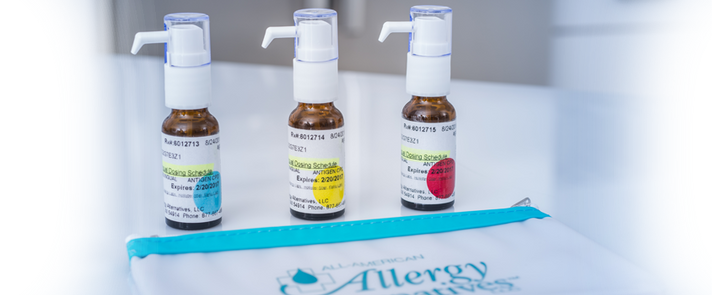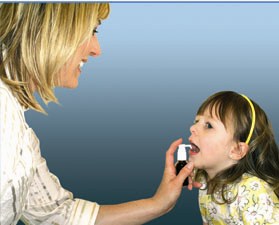Allergy drops are also known as “sublingual immunotherapy”. Allergy drops are a convenient form of allergen immunotherapy that works by putting small amounts of allergen (the substances that cause your allergies) under your tongue. Specialized cells under the tongue called capture the allergens and signal the immune system to start building tolerance. This is a similar idea to getting immunizations. You subject yourself to a small amount of allergens every day- not enough for your body to have a major reaction- but just enough to tell your immune system to fight the allergies.
What are the benefits of allergy drops?
Allergy drops have been proven to be both safe and effective for many types of allergies. The drops typically begin relieving symptoms within the first year, but sometimes these effects are even noticed within a few months.
Once-a-day allergy drops are portable and easy to use. You may use them in the comfort of your own home. This will help you follow your treatment plan, and increase your ability to continue therapy as directed by your prescriber.
No need to worry about soreness from injections, or concerns with needles.
Who May Use Allergy Drops?
- Children and adults
- People with multiple allergies, including pollens, molds, pet dander, dust mites, or food
- People who are not able to commit to weekly allergy shots or prefer a more convenient therapy
- People with side effects to allergy medications or reactions to allergy shots
- Allergic rhinitis, sinusitis, conjunctivitis or asthma sufferers




 Allergy immunotherapy is a form of long-term treatment that decreases symptoms for many people with allergic rhinitis, allergic asthma, conjunctivitis (eye allergy) or stinging insect allergy.
Allergy immunotherapy is a form of long-term treatment that decreases symptoms for many people with allergic rhinitis, allergic asthma, conjunctivitis (eye allergy) or stinging insect allergy. I read a great blog post a few days ago, written by a guest blogger for FARE (Food Allergy Research & Education). The blog post was written to encourage others to participate in Fare’s Food Allergy Heroes Walk. The take-home message for me was simple- Create Awareness.
I read a great blog post a few days ago, written by a guest blogger for FARE (Food Allergy Research & Education). The blog post was written to encourage others to participate in Fare’s Food Allergy Heroes Walk. The take-home message for me was simple- Create Awareness.